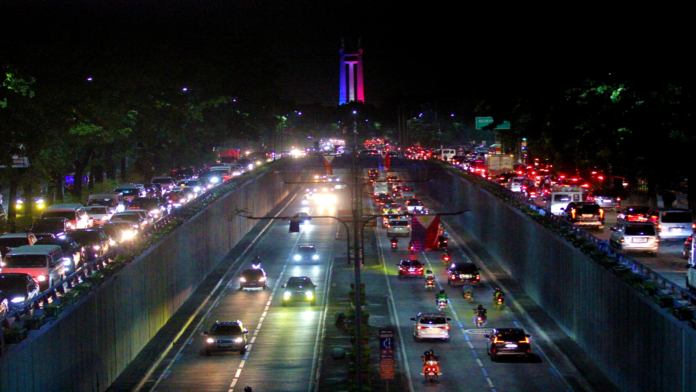The chairperson of the House Ways and Means Committee is eyeing to exempt motorcycles from the road user tax, officially known as motor vehicle user’s charge (MVUC).
In a statement on Tuesday, committee chair and Albay Representative Joey Salceda said the panel will start hearing four proposals to update MVUC rates once session of Congress resumes after President Ferdinand Marcos Jr.’s second State of the Nation Address on July 24.
Salceda proposed to spare motorcycles from the planned road users tax hike, considering that “half of Filipino households own some sort of motorcycle”.
“My proposal is to exempt motorcycles from MVUC. Especially since it’s a means of living now, with delivery express services and the like. Tricycles will also be exempt under my proposal,” he said.
The panel is also considering the inclusion of the MVUC in the Tax Code, since the Road Board, which used to administer it, no longer exists.
Salceda said car owners are “heavily subsidized for car use”, thus leading to traffic congestion.
“The National Government spends around PHP300 billion on road construction and repair every year. Meanwhile, the MVUC is just around PHP18 billion a year. So, car owners are heavily subsidized for car use,” Salceda said.
“The effect is, when something is artificially cheaper than it should be, more people do it than should be. So, we have more traffic than our roads can accommodate,” he added.
The panel, he said, would also consider earmarking some revenues for zero-interest loans for local jeepney manufacturers.
“The imported modern ones are too expensive. We need locally made cheaper ones, so that the jobs created are created here,” he said.
Salceda noted that the tax panel will discuss the motor vehicle tax and the proposed luxury goods tax, which President Marcos already gave his support for, before they discuss proposals for junk food taxes.
“We will discuss taxes that hit the rich first. That’s our constitutional duty. I still have questions about the proposed tax increase on sweetened beverages, and the proposal for salty food taxes. I also want to consider other options, including closing some of the tax exemptions to the sweetened beverage tax,” Salceda said.
Salceda said the proposal to allow industrial users to directly import sugar in exchange for higher sugary drink taxes “makes some sense” from a gross-value added perspective.
“We of course want to keep the jobs they create. And, in the past, I have expressed my support for the same as a separate proposal without the tax side,” he said.
“We just need to study the impacts of doing both at the same time, because remember, we have a domestic sugar sector. I am thinking of a similar system as RA 7171, where tobacco producing provinces now get more from their shares of excise tax than the tobacco they actually produce,” he added.
He said the Department of Finance (DOF) and the House committee will discuss the modalities and the balancing acts for the proposals.
Last week, Finance Secretary Benjamin Diokno announced that the DOF and the Department of Health (DOH) are jointly pursuing a junk food and sweetened beverage tax as a proactive measure to tackle diabetes, obesity, and non-communicable diseases related to poor diet.
Under the proposed tax program, the DOF plans to impose a PHP10 per 100 grams or PHP10 per 100 milliliters tax on pre-packaged foods lacking nutritional value, including confectioneries, snacks, desserts, and frozen confectioneries, that exceed the DOH’s specified thresholds for fat, salt, and sugar content.
The DOF also intends to increase the sweetened beverage tax rate under the TRAIN law to PHP12 per liter, regardless of the type of sweetener used. (PNA)


